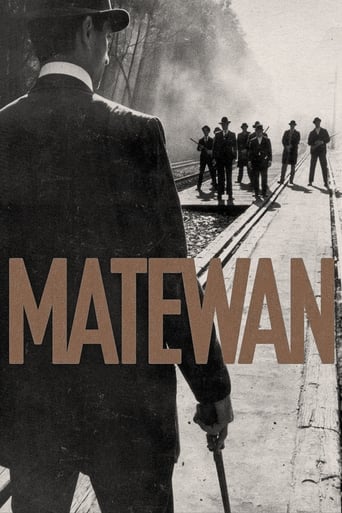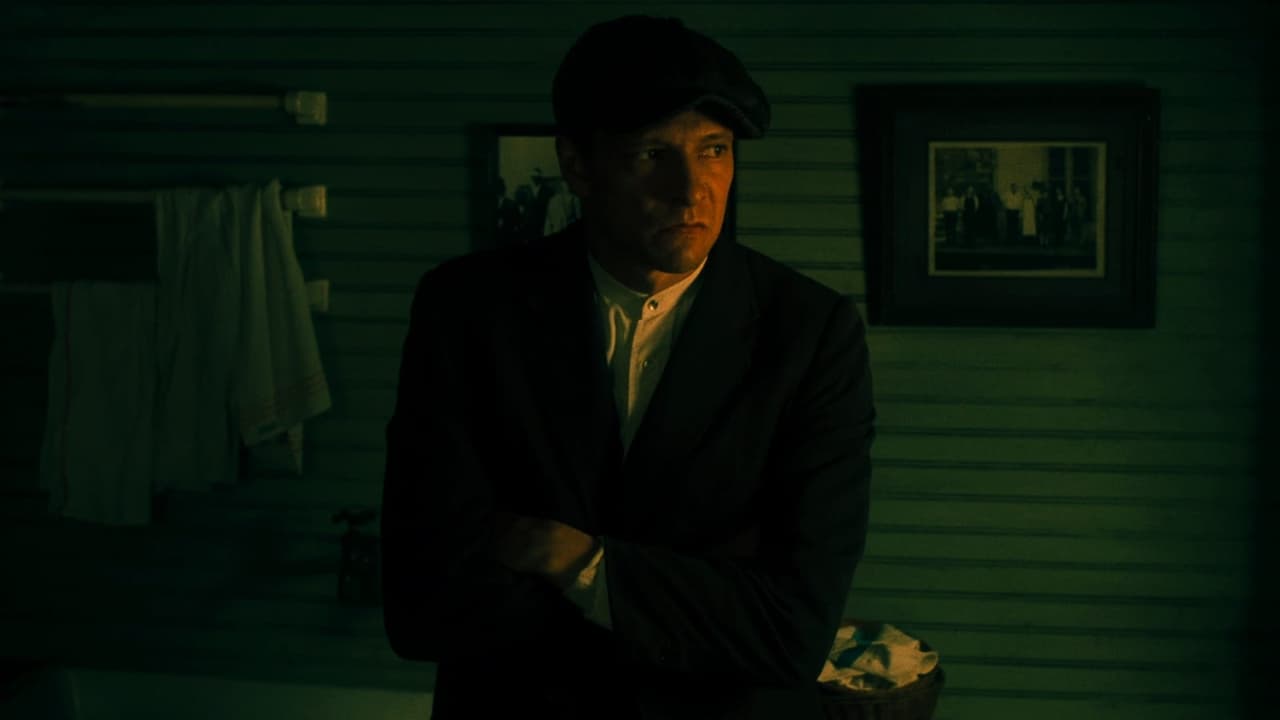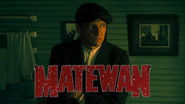carolina torres
In my opinion, Matewan didn't look great. It was based during the 1920 in the life of coal workers in West Virginia going on strike. It was straight forward. The cinematography was amazing for an indie film. I was surprised in some scenes but most of it was a blur. The main characters were cynical men who hated there lives. There is no justice for the black men that are coming from Alabama to work in the coal mines out or work and no way to support there family they travel to west Virginia to work in the coal mine. The white men form the coal mines in West Virginia onto accept these black men.This happens the same in the mountains of Chiapas for the indigenous people and the Mexican government not acknowledging them part of the people. They are angry because there is no work and for a black man to get a job and cut there hours sound ridiculous for them. The movie was boring and a blur there were moments where the Man sticks up for him self in the cabins sticking up for his rights that he deserves the same amount of money as they do because he works as hard as they do. The scene of the black man for me represents how this issue relates to my project and the injustice some face. The unions is a way to unite all races blacks, whites, and Italian coal miners, this what Danny i explain to them.
dallas_nyberg
I live in Australia, so this type of American history is quite often unknown here. Over the past few weeks, I have been studying the history of the American coal mining industry. It has not been pleasant taking it all in. I recently watched a documentary Called "Harlan County USA", which covered the miners strike in the 1970's. I learned from that there was more to learn about the strike in the that occurred 1920's in Matewan, West Virginia. Fortunately I found this movie, "Matewan" and watched it. It is hard to imagine this kind of of corporate brutality being tolerated today. The acting is first rate and the screenplay is excellent. This movie looks gritty and believable. The main character, Joe Kenehan (Chris Cooper) is a pacifist union man sent to Matewan to try to organize the workers to form a union to fight for better conditions. He finds the workers and their families are divided and cautious on the idea. To try to quell the issue, the mining company sends two heavies in to intimidate all those concerned. The two heavies, Hickey (Kevin Tighe)and Griggs (Gordon Clapp), would have to be the most vindictive characters that I have ever seen on screen. They make your skin crawl. The events that play out until the final confrontation, are tense and realistically done. This is not a "feel good" movie, but it is a very important dramatization of a time and place that should never be forgotten. A must see movie.
dougdoepke
Great movie, perhaps the best labor drama since 1954's Salt of the Earth. I wasn't around in 1920, but the gritty "feel" of the times is present, in spades, along with the sheer poverty surrounding the mines. At the same time, we're made to feel the abominable safety conditions prevailing in the black holes. No, this film ain't going to play your local chamber of commerce anytime soon. After all, union organizer Kernehan (Cooper) isn't just an outsider, he's likely also a communist, though the script fudges the issue. The coal company is about to beat back the strikers with Negro and ethnic scabs, until the organizer arrives with a tactical sense of how to foil their plans. So now the company brings in two arrogant thugs to push the miners out of town. And we anticipate a dramatic showdown, but one that's also based on historical fact.I love the way Sayles refuses to prettify the mountain folk. In their plain print dresses and drab denim work clothes, they're the anti-Hollywood. And when chief thug Hickey calls winsome Bridey Mae "mountain trash", I wanted to reach through the screen and throttle him. I also love the moment when colored scab Few Clothes (Jones) enters the union meeting wanting to join up. It's an understandably hostile reception, until Kernahan defuses the hostility by telling the men to recognize a "worker" when they see one. And indeed, the strike won't succeed unless the racial and cultural differences are overcome. I like the way Sayles shows this overcoming in small steps, instead of rubbing our nose in it with a kumbaya moment.It's also apparent that religion plays a big part in how the mountain folk react to organizing efforts. The established preacher's (Sayles) message is to stick with the company and reject union troublemakers. For years, his message has prevailed. However, the kid preacher Danny (Oldham, in a gripping performance) is no longer just an oddity. Now he has seen the struggle, knows the sacrifices, and experienced the brutal company tactics. Thus, his movement toward the union message both helps galvanize the community, as well as reflects their becoming radicalized.I also like the fact that when push comes to shove with the company thugs, the town mayor and sheriff, defend their community. That's based on historical fact, and not what you'd expect when the company, in effect, owns the town (the houses and stores). But the allegiance of the two town officials is ultimately with the people instead of the owners. In fact, it's that growing sense of labor solidarity and community identity that create the force capable of standing up to the combined business interests that extend beyond the little town of Matewan.I guess my only reservation is with the two company thugs. Their arrogance, especially in the revival meeting, is spread on pretty thick. In effect, Sayles has stacked the deck by making them and the side they represent so dislikable. It doesn't reach the level of caricature, but it is manipulation, perhaps in a good cause, but manipulation nevertheless. On the other hand, the mountain folk are fortunately not romanticized or patronized. Instead, they come across as ordinary people finally responding to a bad situation that's only grown worse over time. Then too, Cooper's Kernahan is not romanticized as one might expect if this were a Hollywood treatment. He does intercede at important times, especially with his understanding that violence will only benefit the bosses. And though the unionists win the showdown, unless I missed something, we're not shown that they win the strike as a result.Anyway, in my little book, this is Sayles' biggest triumph. Filming on location was simply indispensable to the movie's gritty period feel. It's hard to believe that one man could be behind such a professional appearing production, especially as someone basically outside the movie-making industry. That, no doubt, accounts for the movie's willingness to take chances. I just wish the movie could be shown in every highschool history class. People need to be reminded why union's came into being, especially with so much anti-worker static being currently spun. Of course, no institution is above criticism, labor unions included. Nonetheless, America's bloody history of winning worker rights needs to be told each generation. Thanks John Sayles for resurrecting this important story.
flnyira
A number of movies have been made over the years dealing with the history of labor relations in this country, but so few have the power and honesty of "Matewan". This movie takes place at a time and place in our history when men literally spilled their blood and lost their lives to fight for the right to unionize, especially in the coal mining industry, where miners were often paid in company script instead of money which could only be used to purchase overpriced goods in company owned stores and the company held the title on their rented homes, so they could evict any "troublemaker" at any time for any reason. This movie shows what happens when men decide not to accept their fate anymore, and the extent the companies would go to keep the men working as little better than indentured servants, including murder. A sad, brutal period in our history, magnificently acted and beautifully filmed. A little known, but must-see film.


 AD
AD





